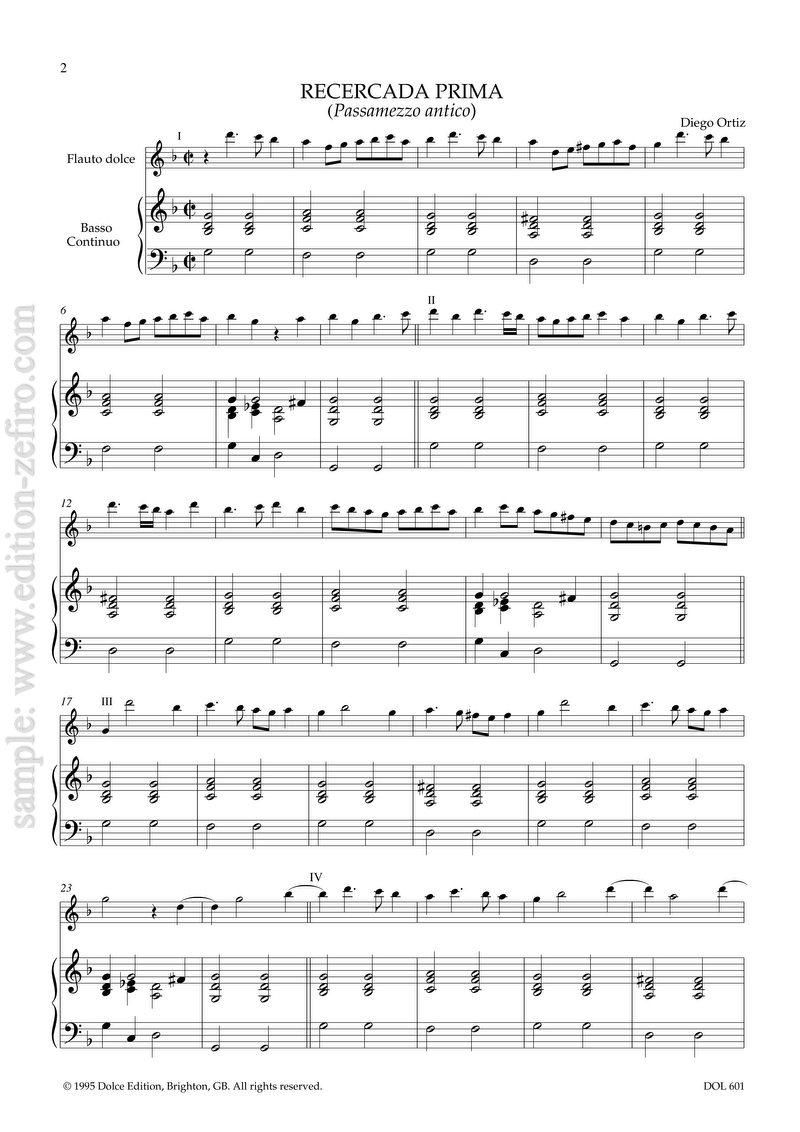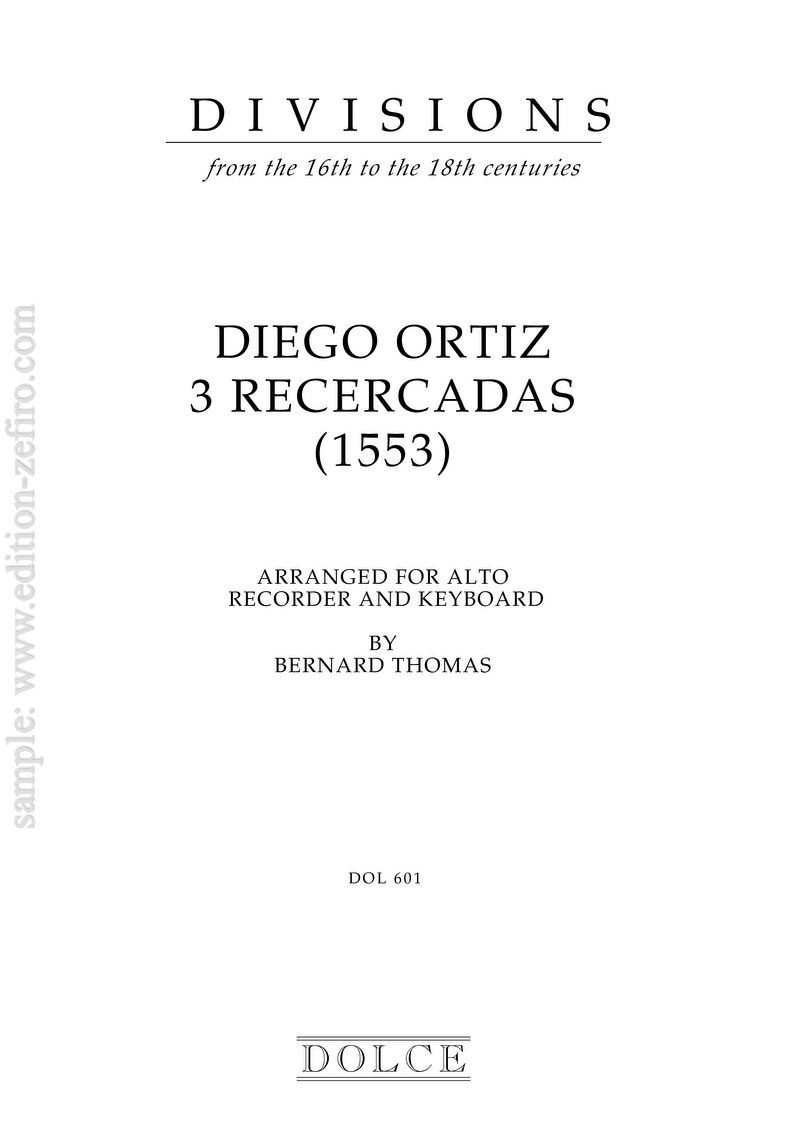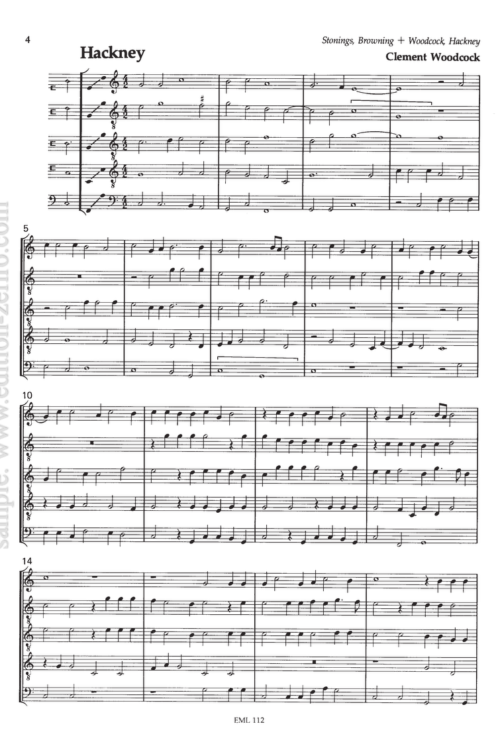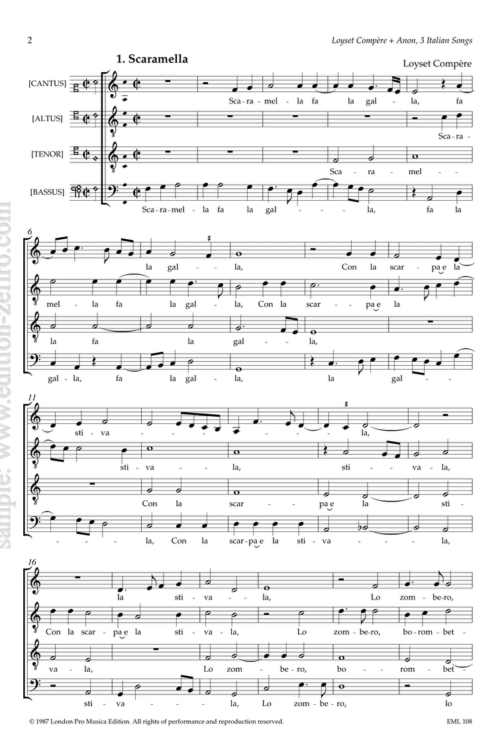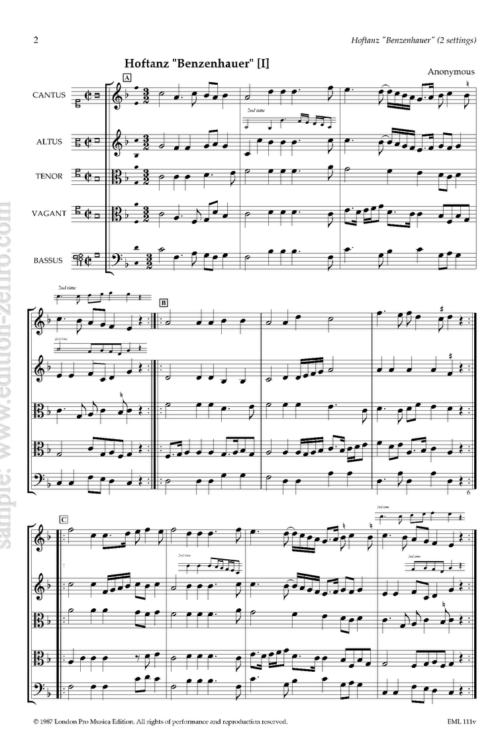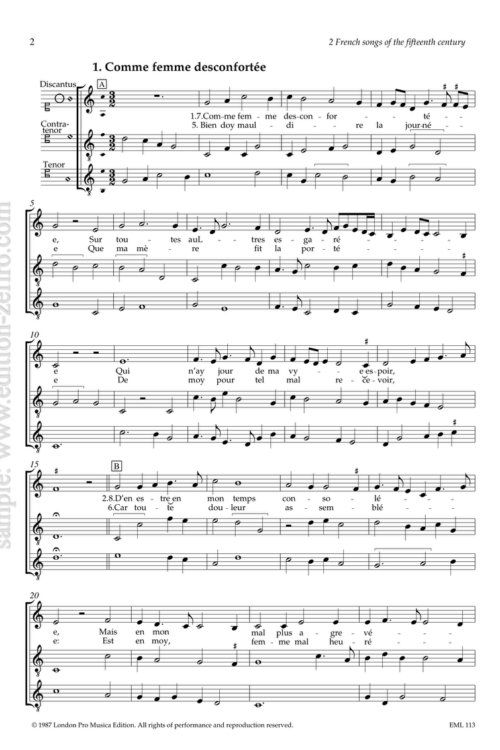Diego Ortiz published an excellent manual on improvisation in 1553. It includes the passamezzo moderno and passamezzo antico printed here.
- Passamezzo antico (Recercada Prima)
- Passamezzo moderno (Recercada Segunda)
- La Gamba (Recercada Quarta)
These three recercadas come from Diego Ortiz’s Tratado de glosas, originally published in Rome in 1553. Ortiz was a Spanish gamba player, and his treatise is mostly concerned with examples of divisions for decorating cadences and given intervals in a melody. At the end of the collection, however, there is a group of improvisatory pieces using the main ground basses of the day, including the passamezzo moderno, the passamezzo antico and La gamba (originally a galliard, but evidently popular material for improvisation in Ortiz’ day).
Ortiz’s pieces look relatively straightforward, but, like some of the best jazz improvisations of the twentieth century, show a great gift for developing motives in such a way as to divert attention from the regularity of the harmonies. To perform this music effectively the player should be able to create the illusion that he/she has evolved the ideas in improvisation.
To fit these pieces on the recorder, some liberties had to be taken, especially in the Recercada Quarta (La Gamba), where quite long stretches had to go up an octave. The basic pitch of the solo part in all three pieces is originally two octaves lower. In the passamezzo moderno piece I had to transpose the whole from G to F to fit on a standard alto recorder in F; however, as the original version works very well on a good Ganassi recorder in G, we have supplied this as a separate supplement.
The keyboard part follows Ortiz exactly: obviously it should be treated purely as a starting point – many players will prefer to add a third in the chords that have only a fifth, for instance. In the first two pieces the bass is a little high, perhaps: many accompanists will prefer to play all or some of it down an octave. The few editorial accidentals in the solo part appear in brackets.
An alternative version of these pieces, for recorder in C (soprano or tenor), can be found via this link DOL 601a ↣.
(Bernard Thomas)


